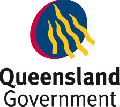CRC40142: Airport Forensics
Airport Forensics was a joint project with Grains Research and Development Corporation (GRDC). This project defined the plant pathogen incursion risk posed by people returning from overseas and interstate travel. This was achieved through the development of technically sound sample/survey methodologies.
The project initially focused on cereal rusts. An assessment of the level of human mediated rust entries into Australia was determined through the sampling of travellers who have been known to have visited grain production regions overseas. Pathogen types examined included air-borne pathogens such as rusts and powdery mildews, and soil-borne pathogens such as Fusarium wilt.
The project also increased the awareness and education of both international and domestic travellers about the risks of spreading plant pathogens on hair, clothing and footwear if they are not cleaned appropriately.
Research outcomes:
A forensic kit was developed that can be used by field staff and international travellers for testing their clothing for the presence of fungal spores. The protocol developed for processing the kit has a > 85% extraction efficiency rate.
The physical properties of fabric that are used to make clothes influence the donor and recipient properties of the clothes. This refers to the ability of the clothes in collecting spores, carrying them and releasing them. Experimental work demonstrated that there is an interaction between spore morphology and the type of fabric.
Experimental work demonstrated that washing the fabric does not remove all of the spores that are present in or on the fabric.
Samples from DAFWA staff that had been working in the field were collected and processed. Samples were also collected from field staff working in NSW, QLD and SA. These samples were processed using the above protocol and then split into three subsamples for analysis. The analysis was done by microscopy, PCR and mass spectrometry.
The use of mass spectrometry to identify fungal spores was successfully demonstrated. Eighteen different fungal pathogens were tested and then identified using blind samples.
The development of a real-time multiplex PCR for the detection of wheat, stem and stripe rust was used successfully to detect and identify these rusts on staff that had been working in the field. There was a reasonable correlation between the microscopy results and the PCR results. The use of mass spectrometry on these samples was not successful due to the low number of spores present in the samples.
Samples were collected from GRDC travel scholarship recipients. The results showed that fungal spores were detected and identified using microscopy and PCR methods.
The research has shown that clothing can realistically provide a pathway for the introduction of fungal pathogens into Australia and within Australia. However, the viability of these spores are not known and will need to be determined.
Research implications:
The research implications from this scoping study, is that awareness of this pathway needs to be raised and does exist. Further work needs to be done to clarify the risk associated with this pathway.
Results from this work have been presented at Global Biosecurity Conference in Brisbane in 2010, and the CRCNPB Science Exchange in Barossa Valley in 2011.
Two refereed publications will be submitted by June 2011.
Numerous articles of the work have been published in the press and in the GRDC GroundCover Biosecurity supplement.
Acknowledgements:
The team would like to thank GRDC and the CRCNPB for supporting and funding such an interesting project.
We would also like to thank Ms Alana Wilkes for her hard work on the mass spectrometry work. Mrs Mirjana Banovic, Mrs Annette Bwye, and Mrs Val McGann for the processing of the forensic tape samples for analysis.

Photo caption: Forensic kit provided to travellers to test for fungal spores on clothing.
Photo acknowledgement: The Department of Agriculture and Food, Western Australia
This is a joint research project with Grains Research and Development Corporation.
Publications for this project
PROJECT LEADER
Ms Dominie Wright
Project Leader CRC40142: Airport Forensics
dominie.wright@agric.wa.gov.au
Phone: 08 9368 3875
Fax: 08 9474 2840
Read More
PROJECT DETAILS
Complete
Term
June 2009 – December 2010
Budget
$1,215,282 (cash and in-kind support)







